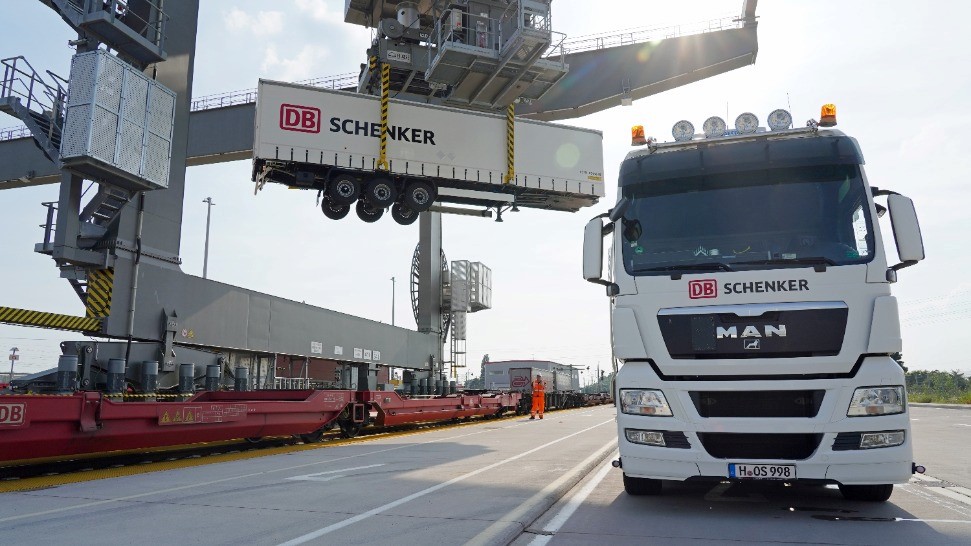The Danish logistics company DSV has won the bid to purchase Schenker from Deutsche Bahn for around €14 billion. The deal, pending final approval, will help Deutsche Bahn reduce its significant debt.

DSV outbids competitor CVC
Danish logistics company DSV has successfully secured the purchase of Schenker, the freight forwarding division of Deutsche Bahn, outbidding its competitor, CVC Capital Partners. On Friday, both companies announced that they had signed a preliminary contract for the €14 billion deal. Final approval from Deutsche Bahn’s supervisory board and the German government is still required, but approval is considered likely despite concerns from labor representatives.
With this acquisition, DSV surpassed CVC, which reportedly made a slightly lower offer. Both DSV and Schenker are ranked as the third and fourth largest companies in the fragmented global logistics market. Together, they employ around 75,000 people worldwide and each generates annual revenues of around €20 billion. The proceeds from the sale will go entirely to Deutsche Bahn, which plans to use the money primarily to reduce its debt, which exceeds €30 billion.
DSV emphasized that the acquisition would make Germany a key market for the company. “The combination of the two companies will increase competitiveness and open access to new markets in a highly dynamic and competitive industry,” said DSV. The company plans to invest around €1 billion in Germany over the next three to five years. Following the merger, the combined company is expected to employ more people than the two organizations currently have together.

Deutsche Bahn CEO Richard Lutz described the deal as the largest transaction in Deutsche Bahn’s history. The reduction of debt, he said, is a substantial contribution to the company’s financial sustainability, allowing Deutsche Bahn to focus on restructuring its operations in Germany.
Employment concerns and union protests
The Schenker employees’ union, Verdi, protested against the sale to DSV. As a competitor of Schenker, DSV’s acquisition could lead to job cuts and the closure of certain locations. The union also fears that the Schenker name, a long-established brand, may disappear. CVC had proposed retaining the Schenker brand and planned to take the company public within three to five years. CVC argued that this approach would result in fewer job losses compared to a merger with DSV.
However, DSV disputed this, stating that only about 2,000 of the nearly 15,000 Schenker jobs in Germany would be affected, mostly in administrative roles. Schenker is already undergoing a cost-cutting program, so the number of job cuts would be smaller than anticipated. DSV currently employs around 5,000 people in Germany. The company has committed to a two-year job guarantee following the merger, which is expected to be finalized in the second quarter of 2025. The Schenker headquarters in Essen will also remain in place during this period.
In response to employee protests, DSV offered an additional €10 million to a severance fund for affected workers.
Deutsche Bahn’s restructuring challenges
For Deutsche Bahn, the sale of Schenker marks the loss of its most profitable division. The deal provides Deutsche Bahn with a much-needed financial buffer. The company now aims to return to profitability by 2027 without Schenker’s contributions. Deutsche Bahn’s freight division, which has struggled for years, faces pressure from the European Commission to break even by 2026. From that point, Deutsche Bahn will no longer be allowed to offset freight losses with profits from other divisions.
The sale will also force Deutsche Bahn’s long-distance passenger division to delay its planned purchase of new ICE trains, saving billions. The company will focus on repairing its outdated rail network, with the goal of improving on-time performance to 80% by 2027. Additionally, at least 30,000 jobs, primarily administrative roles, will be cut from Deutsche Bahn’s workforce of over 200,000 employees.
Schenker, originally acquired by the Reichsbahn in the 1930s, was sold off in 1991 before being re-acquired by Deutsche Bahn in 2002. The idea was that Schenker and Deutsche Bahn’s freight division would complement each other, but expected cost savings and customer gains, particularly in the freight division, failed to materialize. Within Schenker, some viewed their association with Deutsche Bahn as a burden due to the lack of investment in the freight forwarder.








